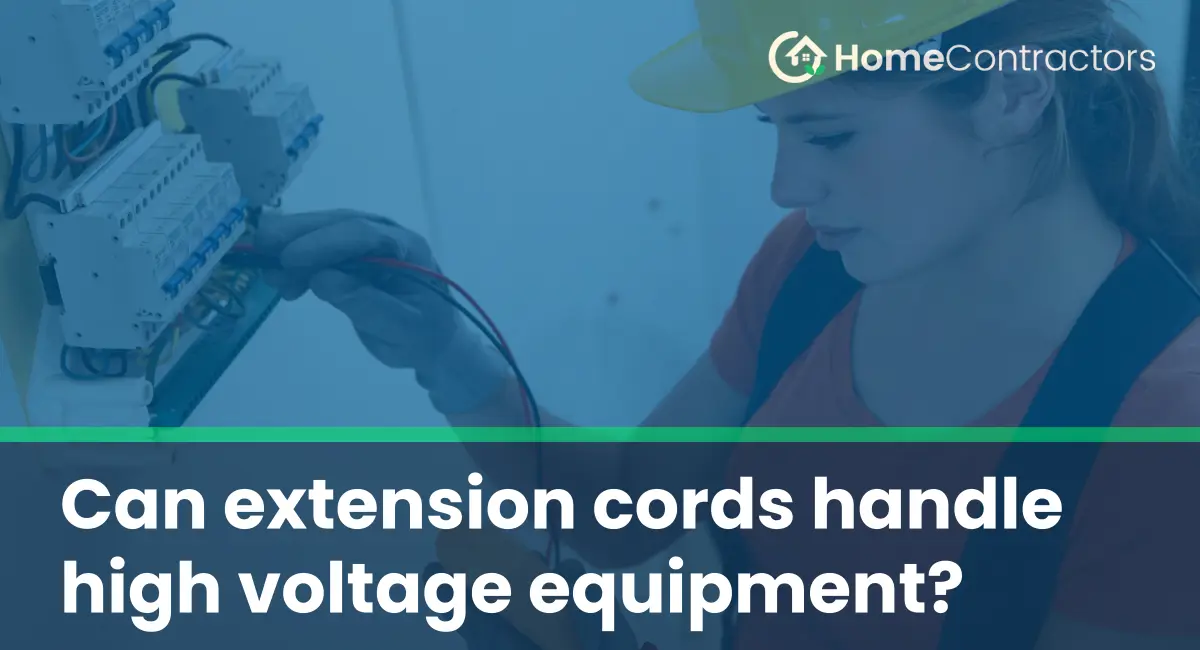Extension cords are commonly used in households and workplaces to provide additional reach for electrical devices. However, it is crucial to understand their limitations, considering the potential risks and safety hazards involved. In this article, we will explore whether extension cords can handle high voltage equipment and the factors that need to be taken into account to ensure safety.
Understanding Extension Cords:
Before delving into the question at hand, it is essential to comprehend the basic structure and components of extension cords. Extension cords are essentially a length of flexible electrical cable with plugs on either end, allowing multiple devices to be connected to a power source simultaneously. They are available in various sizes and gauges, each designed to handle a specific electrical load.
Understanding High Voltage Equipment:
High voltage equipment refers to electrical devices that require a higher electrical voltage to operate effectively. These devices generally consume a significant amount of energy to meet their intended purpose. Such equipment includes air conditioners, refrigerators, power tools, photocopiers, and many others.
Types of Extension Cords:
Extension cords come in different types, each designed for specific purposes and load capacities. It is crucial to select the appropriate extension cord to ensure optimum safety and prevent damage to both the equipment and the cord itself.
1. Standard Extension Cords:
Standard extension cords are the most common type found in households. They are primarily designed for low voltage devices with lower energy requirements. Standard extension cords are not suitable for high voltage equipment as they may overheat and pose safety hazards.
2. Heavy-Duty Extension Cords:
Heavy-duty extension cords are designed to handle higher electrical loads and can accommodate higher voltage equipment satisfactorily. These cords are built with thicker and more durable wire gauges and are typically rated to handle loads between 10 to 15 amps. They often have a power rating of 1500 to 1875 watts.
Important Considerations:
While using extension cords with high voltage equipment, there are several factors that must be considered to ensure safety and prevent any damage or hazards.
1. Cord Length:
Longer cords tend to generate more resistance, resulting in a voltage drop. This voltage drop can impact the performance and efficiency of high voltage equipment. Therefore, it is essential to choose the appropriate cord length that allows the equipment to function optimally without any strain or voltage fluctuations.
2. Cord Gauge:
The wire gauge of an extension cord determines its ability to handle electrical load safely. High voltage equipment requires a heavier gauge wire to prevent overheating, power loss, and potential electrical fires. Using the wrong gauge can damage the cord and put the equipment and users at risk.
3. Amp Rating:
Extension cords often come with an amp rating, indicating the maximum amount of electrical current they can safely carry. It is crucial to select an extension cord with an amp rating that exceeds the electrical requirements of the high voltage equipment to avoid overload and potential hazards.
Final Verdict:
While extension cords can be convenient for temporarily powering low voltage devices, they are not suitable for high voltage equipment due to the risks involved. It is always recommended to use dedicated circuits or outlets for high voltage equipment to ensure safety and prevent any potential hazards. However, if using an extension cord becomes necessary, opting for heavy-duty extension cords with the appropriate length, gauge, and amp rating can minimize risks and allow effective functioning of high voltage equipment within safe limits.
